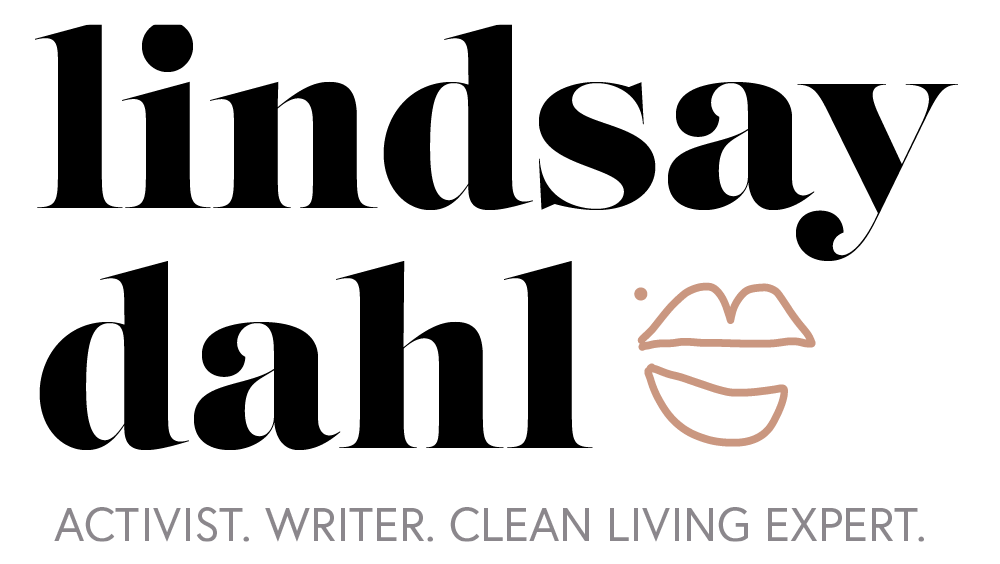You may have heard that some cosmetic and skin care products contain harmful ingredients, and that it’s perfectly legal for those said ingredients to be there. And you may have also heard that there is widespread “greenwashing” in the skin care industry, where green or natural companies claim to be safer than they actually are…so how do you find out if your favorite cosmetics or skin care company is safe?

It’s the million dollar question of the day and I’ve got five simple questions I suggest asking your favorite company. If you’re unsure how to interpret their responses to your questions, please feel free to post the response in the comments below and I can help cut through the crap!
1. Do you disclose: All ingredients, for each product, publicly?
Everyone likes to talk about transparency these days, but what does transparency actually look like? Ask your skin care or cosmetic company if they fully disclose all ingredients publicly. You’d be amazed how many companies are failing to do this. Widespread selective labeling means that companies who are fully disclosing all ingredients need to spend more time explaining why certain ingredients are included or even necessary, like preservatives.
2. Do you fully disclose fragrance ingredients?
Fragrance is a catch-all term and can hide harmful ingredients, many of which are known allergens. According to the International Fragrance Association, over 3,000 different chemicals can be used or fall under the simple word “fragrance”. Only purchase products from companies who fully disclose fragrance ingredients and preferably from companies who use cold pressed essential oils.
3. Do you screen for heavy metals in color cosmetics, on an ongoing basis?
One of the cosmetic industry’s dirty little secrets is they don’t want to talk about “contaminants.” Not everything that is natural is safe and heavy metals are a great example. The color used to make your blush pink, lips red and eyelids purple are often contaminated with heavy metals. This is true for both natural and synthetic derived colors; many mineral “natural” cosmetics contain high levels of heavy metals.
The companies are not intentionally adding heavy metals to their products, they simply aren’t testing for them. In the rare instance that a company is looking for heavy metals (I only know of a few companies who are), they aren’t testing each batch for heavy metals. That’s a problem because new color pulled from a different part of the earth and one batch could be completely lead free, and the next loaded with unsafe levels. If a company is not testing for heavy metals on an ongoing basis, you’re putting yourself at risk to heavy metal exposure.
4. Do you screen ingredients for: carcinogens, mutagens, reproductive toxins, neurotoxicity, VOCs and other harmful toxicants?
What this question means is how is a company defining safety? Being safe means different things to different people, and without any sort of federal system to identify what safe means, the industry gets to make it’s own standards. Is a company assuming ingredients are safe because they are already on the market? Are they using a body of scientific literature to back up its safety claims? Are they doing the hard and nuanced work to decipher what levels of a particular ingredient are safe? If a company is focusing on safety, they often start and stop at “restricted substance list.” What this means is they will have a list of ingredients they won’t use, but this doesn’t mean that they are screening each ingredient for safety. If a company can’t tell you how they define safety, move on to a new company.
5. Do you support reforming our federal laws to protect public health from toxic ingredients?
Are you inadvertently supporting a company who is lobbying against protections for your family? Most of the skin care and cosmetic company giants are actively lobbying Congress as they consider updating our laws on toxic chemicals. The question is what kind of reform is a company advocating for? One that puts the health of your family first or the interests of the $200 billion cosmetic industry?
This exercise is for the most active and engaged consumer. Not everyone is going to ask these detailed questions or have the proper tools to know how to decipher a company’s response. I encourage you to post any responses you receive from companies in the comments below, especially if you need help reading between the lines.
In the meantime, if you’re looking for a company that meets all of the criteria above look no further than Beautycounter. For those of you who know me, I don’t take brand recommendations lightly, especially when it comes to safety claims of consumer products. The steps Beautycounter takes to ensure their products are safe, and dedication to radical transparency in a confusing marketplace puts them at the top of my list for skin care and cosmetic needs and is why I joined their team last fall. You can look at Beautycounter’s skin care and cosmetics line here. (My favorite products these days are the Face Oils and Tinted Moisturizer).
Never miss a post and join my mailing list.




Great list of questions. I hope the “fragrance” loophole gets killed soon, along with other toxic chemical reform : )
You and me both sister!
Great questions! Love Beautycounter!
Such great information in this post Lindsay. Thank you! It’s so important to remember that cosmetic companies generally aren’t testing each batch for heavy metals.
I think the heavy metal contamination in color cosmetics is the biggest concern for myself. It’s one of many things that drew me to Beautycounter. Thanks for commenting and sharing!